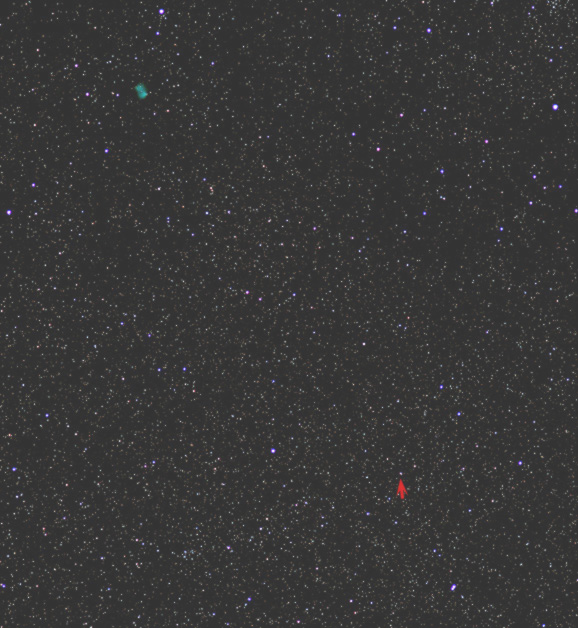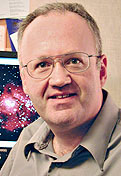 |
|
|

|
2007
August
27-31
|
Against the "Fair Tax"
Minor updates August 28.
I generally favor taxing people when they spend money rather than when they earn it,
but I've had some doubts about the technicalities of the proposal to replace income tax
with a national sales tax. The technicality that bothered me was retirement and
disability plans, which are generally calculated to replace after-tax, not pre-tax, income.
According to
Bruce Bartlett,
there's a lot more to worry about.
Basically, the calculations about how much the "Fair Tax" will cost, and how much
it will bring in, involve lots of hand-waving.
The tax rate might need to be as high as 57%, not 23%.
At that level, enforcement could be a real problem.
Naturally, others disagree.
Lengthy discussion
here, in
Gregory Mankiw's economics blog.
Many of the discussants are capable economists.
Correspondents also refer me to
this rebuttal by Neal Boortz.
Note that, contra Bartlett, the Church of Scientology did not originate the Fair Tax,
although they may have supported it at some point, and numerous other factual claims are
also challenged.
Please note that I have not taken a position on the Fair Tax and am not obligated to do so.
This is a Daily Notebook, not a political party platform!
Please don't expect regular Notebook entries for the next few days.
We have several other things going on. I'll be back in September, I promise.
Permanent link to this entry


|

|
2007
August
26
|
Miscellany
Potheads take note:
Marijuana is even worse for you than experts thought last month.
The latest development
addresses the "self-medication" issue: Do people use marijuana because they're already mentally
ill? (Either because it makes them feel better, or because they have impaired judgment?) The answer is no.
The mental illness appears or worsens after the drug use.
The full paper — which is only accessible to subscribers and libraries — also addresses
the long-term intoxication issue. Marijuana lingers in the body for weeks after use.
A person who uses it every two weeks is never drug-free. It's hard to distinguish persistent
intoxication from permanent damage.
Note to the peanut gallery: This is not right-wing anti-drug propaganda.
It's honest scientific research about the neurochemistry of psychosis.
The researchers did not make up their minds before doing the experiments.
Financial illness too: The subprime-mortgage crisis is beginning to affect
credit cards,
and people are finding their credit limits unexpectedly lowered.
When you get notices in the mail, read the fine print carefully!
Here's a
microcontroller
with a Logo interpreter built in, the "Logochip."
I haven't tried it yet. The best thing about it is that the Logo interpreter is freeware;
you can buy a blank chip and program the Logo system into it. The price is right!
And enjoy
Keith's
Electronics Blog. [Link corrected.]
Permanent link to this entry


|

|
2007
August
25
|
What's better about Vista
Recently
Jeff Duntemann
characterized Windows Vista as "not necessary."
I suppose DOS versions after 3.2 were also "not necessary" in the sense that you didn't
need them to run DOS software. But that doesn't mean they weren't improvements.
To see what's improved about Vista, look beyond the glitzy (CPU-hogging) graphics
and the Grandma-proof security features. (Believe me, computers that are not run
by computer geeks need Grandma-proofing. Even more, they need 12-year-old-grandson-proofing.
The 12-year-old grandson will click on anything, anywhere on the Web, just to see what it does.)
Look, in particular, at the middle of
this article,
then proceed to the second
and third
articles in the sequence.
Compared to Windows XP, Vista adds:
- Cancellability of synchronous I/O operations. You're no longer condemned to wait until a
network connection either responds or times out.
To try this out, go to a command prompt and type
net view \\blahblahblah
Windows will take a long time looking for \\blahblahblah, which isn't there.
Under Vista, you can cancel this with Ctrl-C; under XP you can't.
The same goes for hitting "Cancel" on an open file dialog.
Now you can bail out before the network times out.
Potentially a big time saver! But programs have to use it,
either by using built-in file dialogs or by supporting it in other ways.
Old software does not automatically benefit.
- Priorities for I/O operations as well as CPU time. This will keep programs from
disrupting each other, particularly antivirus programs (once their makers rewrite
them to use low-priority I/O). Again, old software does not necessarily benefit.
- Separation of system services from the user's interactive session.
This is the way it should always have been, although it does lead to the occasional
puzzling message box, "A program can't display a message on your desktop," which
fortunately gives you the opportunity to switch to the service session and see it.
- A new class of delayed, low-priority startup processes.
This is for programs that need to run every time you log on, such as the
Windows Update checker, but should not be allowed to slow you down.
This will reduce the slowness that users experience in the first few minutes
after logging on.
- Sundry other improvements in reliability and security.
These are rather deep architectural changes to the operating system, even though their
effect on users of older software is not very visible. In summary, Windows leaves behind the
last of its DOS heritage and asserts itself as a modern, essentially multi-user
operating system.
Permanent link to this entry
The surreal (or flammable) University
Today's Surreal University scene deserves an entry all to itself.
Very few of our students still smoke. A third did in the 1970s; today it's down
to about 1%, as best I can tell.
One of the last surviving smokers, a sorority girl with long bleached hair, was sitting
outside the Science Library today, cell phone in one hand and cigarette in the other.
And running one hand through her hair repeatedly.
Guess which hand?
In the end, the inevitable did not happen, but I did go up and speak to her
after she finished her phone call, and asked, "Have you ever thought about how
easy it is to set hair on fire?"
It's a fact that hair is very flammable.
But I've never had to protect a student from this particular hazard before.
Permanent link to this entry


|

|
2007
August
24
|
And Nikon has built me a camera too...

If you took note of the
Canon EOS 40D,
have a look at the just-announced
Nikon D300.
Like the Canon, it offers live focusing on a 3-inch LCD;
it costs more (we think!) but also offers
more performance in several ways.
What we don't know is whether the infamous
Nikon "star eater" problem has been
solved, but since there's a new CMOS instead of CCD sensor
and a new image processing engine,
there's at least a sporting chance of it.
More news when there's news.
This camera is obviously meant to give the EOS 40D a run for the money.
Apart from that I continue to be too busy. Normal Daily Notebook entries will resume soon.
Permanent link to this entry


|

|
2007
August
23
|
Miscellany
Far too much going on right now. I'm trying to fix a broken hot water pipe.
Someone made a cold solder joint
34 years ago — just didn't heat it enough —
and last night at 12:30 it let go, producing a cascade of gallons of water
from the wall in Cathy and Sharon's bathroom.
I'm fixing it with marine epoxy, which takes a long time
to harden but will harden in contact with water.
I want to thank Jeff Duntemann for the link to
this
interesting series of articles
on how the Vista kernel works.
Something to read while watching epoxy dry!
Tomorrow (Aug. 23 — I'm writing this the previous night) we take Sharon off
to college and become half-empty-nesters. Cathy of course has been in college for
a while but is living at home.
Further to yesterday's remarks about psychosis and the Internet, anybody who
frequents chat rooms has seen plenty of examples of
persecutory delusions
and
antisocial personality disorder.
(The latter are the people who will go to any length to hurt you,
especially if they've found a way to get on the Net anonymously or under frequently-changing false names.)
This is not news and is not quite what the article I cited was about.
It dealt with a milder kind of psychosis that often goes unrecognized until it worsens.
Permanent link to this entry


|

|
2007
August
22
|
Psychosis and the Internet
Here's
something else to worry about.
[Link corrected.]
Online social life —
especially chat rooms and multiplayer online gaming —
appeals to people with schizotypal personality disorder
(a condition resembling schizophrenia, but milder).
Two explanatory mechanisms are proposed:
social awkwardness and delusional "magical thinking."
Nobody's saying the Internet causes the disorder;
it may even be therapeutic.
The point is that it attracts people whose ability to
function in normal human society is somewhat deficient.
And that's not news, although I'm glad it's been investigated scientifically.
Permanent link to this entry


|

|
2007
August
21
|
Miscellany
Let the record show that
HAL, our 1983 IBM PC,
still works and has performed useful work for us as recently as
August 20, 2007, copying diskettes from 5.25" to 3.5" format
for Brendan Mullen. May it live long and prosper.
Here is a nice piece by Ed Bott about why the world
of software needs
fewer whiners and more complainers.
The difference?
Complainers say specifically what's wrong — so that others can
fix it — whereas whiners just say, "Nyaaah, nyasah, nyaaah, Vista's no good,
computers were perfect 5 years ago, they shouldn't make me learn anything new..."
A deeper point he makes it that early adopters find the problems
so they can be fixed and everyone will have a smoother time in a few more months.
If you choose to be the first person ever to run some particular combination of
hardware and software, don't complain that nobody has done it before.
Miscellaneous interesting reading:
Here
is Herbert Keppler's 1969 biography of the Zeiss Biotar, granddaddy of camera lenses
as we know them today.
And the Royal Canadian Mounted Police
always get their ape.
Even if it's a fake ape.
Permanent link to this entry


|

|
2007
August
20
|
The camera Canon built for me?
REVISED Aug 20, 12:45 am EDT.

Canon has just announced the EOS 40D, a new DSLR camera that introduces
a number of useful features and sets a new standard for price-performance ratio.
For the official details, see
Canon USA,
DPReview (the site to watch for a good review),
and Popular Photography,
and if you want to pre-order an EOS 40D from Amazon,
click here.
I may have had some influence on the EOS 40D's design. Certainly, while working on my
DSLR astrophotography book, I stayed in touch
with Canon USA, and we discussed desirable features for a new DSLR camera. This one appears
to have them.
It's generally similar to the Digital Rebel XTi (10 MP),
including the ultrasonic vibrator
to get dust off the sensor, but has an even bigger LCD screen.
It has 14- instead of 12-bit ADC, giving 4 times as many levels of brightness,
and a better sensor with bigger microlenses and less noise.
Now here's where it gets interesting. Features that seem to show the influence
of my astrophotography books include:
- Live focusing (LiveView) like the now-discontinued astronomical EOS 20Da. That will
make astrophotography (my way) much easier to do. The view appears on the LCD
screen or an attached video monitor.
- Some kind of "electronic first-shutter-curtain function in Live View" —
does this mean a vibrationless way to start the exposure electronically with the
shutter already open, as with an astronomical CCD camera? Not sure yet, but I do remember
expressing the wish that a DSLR could do that. It will be great for lunar and planetary
photography. But the people who will really
like it are the microscopists, who outnumber astronomers by a large factor.
Canon doesn't make microscopes, so you don't normally see Canon cameras in that
context — but that may change.
- Of all things, interchangeable focusing screens. Here it looks as if they
were influenced by my film astrophotography book.
And they may have been listening when I
told them that I usually focus the DSLR
with the Angle Finder C and then confirm the focus electronically.
Also, they've caught on that lots of people use Canon EOS bodies with lens adapters
to breathe new life into their classic Nikon, Zeiss, and Olympus lenses, which have to
be focused manually through the viewfinder.
What I don't know about is the red response. I've been asking for a camera with response
like Ektachrome, extending just past 650 nm, instead of like Fuji Sensia, which cuts
off around 620 nm. The latter is better for portraiture — to keep skin from looking too red —
but Ektachrome-like color is better for astronomy and for nature photography.
I'm not going to buy the first EOS 40D in town; they'll be more reliable after they've been
in production for a few months, and anyhow, image processing
software needs to catch up with the new developments.
(I'm expecting some software to be confused by 14 bits of data in the same file format as with
the previous 12-bit cameras.) The EOS 40D will be bundled with an image-stabilizing
zoom lens for
about $1500. Correcting for inflation, that's about $200 in 1970 dollars, making it comparable to what
other SLRs cost back when I was getting into photography.
There's some evidence (other than this Notebook entry, I mean!) that the EOS 40D has acquired
a cult following even before its release. Someone unconnected with Canon has set up the
web site
www.canon-eos-40d.com
to collect information about it. Today they'll be busy.
Humor Dept.: For some months people have been looking for "EOS 40D" in search engines
and found pages where someone had mistyped "EOS 400D," leading to reports that the 40D and
the earlier 400D were awfully similar. Meanwhile, lots of fake pictures of 40Ds
have circulated, of which the funniest was
this spoof.
Permanent link to this entry
Gaslight parts
The little threaded cylinders that hold lamps and light fixtures together
are threaded just like 1/8-inch plumbing pipes, which are used for gas lines.
Why? As I understand it, this standard goes back to the gaslight era
more than 100 years ago, when lampshades often were supported by the actual
pipes that carried the gas.
I put a couple of these threaded cylinders to good use recently.
When I put compact fluorescent bulbs in my overhead light fixtures,
the diffusing glass was very close to the surface of the bulbs,
resulting in unpleasant "hot spots." Putting the glass just half
an inch lower made a big difference.


Permanent link to this entry


|

|
2007
August
19
|
Windows (Vista) DVD Maker notes and quirks
As I've mentioned, I'm working on an application that creates custom DVDs by
joining together short videos selected by the user.
In its current incarnation, it normally does this by generating an
XML "job file"
for Windows DVD Maker.
So I've learned a number of things about DVD Maker. Specifically:
- It comes only with Vista Ultimate and Vista Home Premium.
- Every time you start to make a DVD, DVDmaker.exe launches TrustedInstaller.exe, which runs for a
few minutes; so far I haven't discovered what it's doing. Checking for updated codecs?
Rights management?
- MPEG-2 files convert into DVDs much faster than other formats.
I made a 20-minute-long video file in several formats.
Burning a DVD from MPEG-2 took 15 minutes, including creation of the title
and that mysterious TrustedInstaller run; from DV-AVI it took a solid hour.
- You have to pay royalties to use MPEG-2 commercially, but we will gladly do so, since
it gives a performance speedup as well as saving disk space compared to DV-AVI, with no
loss of video quality that I can see.
- My new
Sony DRU-830A DVD burner works beautifully
and will even burn at 16× on old HP 8× discs.
It replaced an increasingly quirky DRU-720A (I think it was)
which fairly often failed to burn DVDs
at all.
For some of this information I want to thank Eric Gunnerson (of Microsoft) and several
newsgroup participants.
DVD Maker has
its own web site
with forums that people seldom visit.
You can post a question there, but it probably won't be answered.
Permanent link to this entry
Antivirus
The University of Georgia has a site license for F-Secure Client Security, a comprehensive
antivirus package. Not everybody is satisfied with it; it has a tendency to take 99% of the CPU cycles
for a quarter hour at a time when it misguidedly wants to search a big install package or
something else that's been on your disk for years. Antivirus software
should multitask better than that.
So I'm in the market for alternatives, and Kaspersky seems to be getting the best reviews.
My Vista system is currently running the free version of AVG.
Part of the question is, how much protection do I need? I'm not a naive user, I'm not
surfing for pornography, and I'm not haphazardly clicking on things to see what they do.
Frankly, for the past several years I've only encountered viruses in things that I already
knew were suspicious. And Vista (with Windows Defender)
now detects spyware and other malware by its behavior.
F-Secure and Norton (Symantec) antivirus programs are very diligent, at the cost of CPU speed.
My computer is not just a Web viewer; I do computation on it.
And I'm not sure I can stand Big Brother wanting 75% of my CPU at odd, but frequent, moments.
The trouble is, it takes a lab test — not just personal experience — to know whether
an antivirus program is doing its job. I know that AVG and Kaspersky are not CPU hogs.
How well do they find viruses? I hear that Kaspersky
is excellent and AVG may not be too hot.
But that's just a summary of what I've read online.
At the other end of the scale, I think both F-Secure and Norton are weighted down by
trying to do too much. The only perfectly safe computer is a computer that
nobody is using. You can't intervene to perform checks
every time the user does anything at all. If you try,
you make the computer useless.
Permanent link to this entry
Is Web 2.0 killing professional journalism and turning us all into fools?
Andrew Keen's new book
The Cult of the Amateur
claims that "Web 2.0" (roughly, blogging, MySpace, YouTube, and widespread amateur
creation of web content) is killing off one of society's most valuable resources,
namely professional journalism.
According to him, it's going to turn us all into fools. Without professional journalists
to guide us, we'll be confused and misinformed. We may end up believing propaganda and
outright lies. And by the time we realize it, professional journalism will have died out
and we'll be helpless.
In the old days, to ascertain a fact, all you had to do was look it up in a reliable
printed source, and you had the Truth. Nowadays you inevitably hear from a lot of conflicting
sources and have to sort things out for yourself.
And, I suppose, pigs can fly, and the moon is made of green cheese.
Haven't we always been told, "Don't believe everything you read?"
It seems to me the interactive Web has made reliable information easier to get,
not harder. When you look something up, you get all available opinions,
not just one. That doesn't mean they're all true, or that there is no truth to be found.
On the contrary, it means the materials for critical thinking are at your fingertips.
And if you encounter a crackpot, you'll also encounter plenty of other people
saying he's a crackpot.
We certainly still have mechanisms for getting material reviewed by acknowledged
experts. There are new, online, fully refereed scientific journals, for instance.
And it's no accident that I get my world news from Reuters and the BBC rather than from
the noise of the rabble. I don't see either Reuters or the BBC losing its role.
If Mr. Keen's position is that he's qualified to tell us what to think, and we're not
qualified to think for ourselves, then good riddance to professional journalism.
It seems to me that many journalists are inadequately educated and overly self-important.
But then, according to him, you shouldn't believe what I'm saying, because it's
in a blog.
Here
is a more thorough review by Lawrence Lessig, which I found after
writing the remarks above. Check out his quote from John Philip Sousa lamenting the
death of "amateur" musical performance.
Permanent link to this entry


|

|
2007
August
18
|
Miscellany
CPIDR:
Today (Aug. 17) we went public with a piece of research software.
Click here
and look at "Software Downloads."
Economy: I continue to be amazed at how much
the Hong Kong stock market is affected
by the actions of the U.S. banking industry and the Federal Reserve System;
also at the fact that I can read
business news on Xin Hua
all day long without seeing any mention of Communism, socialism, Marx, or Mao.
Maybe China has gone capitalist without our noticing it.
On a lighter note, look at the
faux antique calculators (containing modern electronics in
deceptively aged "steampunk" enclosures)
made by Andy Aaron.
Ed Bott has some good remarks
about Vista FUD. Plenty of people are eager to tell you Windows Vista
is evil, even if they have to misstate facts to do it.
Here
is a truly amazing picture of Jupiter taken through a 13-inch telescope
(from Australia, where Jupiter is presently high in the sky).
It looks like a Space Telescope image.
Surreal university:
Cathy reports that on the first day of classes, the
School of Art
didn't have room numbers because someone had painted over them;
they clashed with the artwork he was putting up.
And you couldn't even count doors because some rooms have one door, some two.
And here
is the funniest video I've seen in a long time.
The protagonist plays "Suwannee River" on a musical instrument
carved from a carrot.
Permanent link to this entry


|

|
2007
August
17
|
Here come the arrogant atheists
A recent flurry of books — which I haven't read in full — assure us that
science has proved there is no God, religious people are stupid, and (apparently)
freedom of religion
should be reduced. The two most prominent books are
God is Not Great,
by Christopher Hitchens, and
The God Delusion,
by Richard Dawkins.
The second author, Dawkins, a great scientist.
Hitchens is a literary critic, so let's deal with him first.
His book is scathingly critiqued
here
by Biblical scholar Mark Roberts,
and
here,
in the secular press, by Steve Prothero.
Both give it very low marks for accuracy; that is, they say although Hitchens
profusely ridicules his opponents, he is himself very misinformed about
the history and beliefs of the religion he is attacking (Christianity).
[Added Aug. 19:] Hitchens also gets incisive criticism from
my daughter,
who is actually reviewing a review... Take-home point: You can't attack or defend
"religion" as a whole. Different religions make radically different claims.
Dawkins — who, until now, has been a widely respected popularizer of science —
is getting bad reviews even from atheists.
"The God Delusion makes me embarrassed to be an atheist," says philosopher Michael Ruse,
quoted on the jacket of another book.
For a full rebuttal of Dawkins see Alister and Joanna McGrath's book,
The Dawkins Delusion;
for a worthwhile excerpt click
here.
The big, undisputable fact that Dawkins and Hitchens ignore is that
highly intelligent people are split on the issue of religion.
If science had really "proved" that there is no God,
scientists would all be atheists by now.
But they aren't.
Alongside atheists like Dawkins you have great scientists who are Christians, such as
Freeman Dyson, Francis Collins,
and D. E. Knuth. The late Stephen Jay Gould, a nonbeliever, said that "either half my colleagues
are stupid" (which he did not believe) or religion is
apparently compatible with present-day scientific knowledge.
What most alarms me about the new wave of atheists
is that they don't have much good to say about freedom.
Until now, atheists have been thankful for their freedom to disbelieve,
and they've been eager to extend freedom of thought
to everyone else, religious or not.
Plenty of atheists continue to see things that way.
Not so the new wave.
They have The Answer and don't want their conclusions questioned.
Dawkins compares it to "child abuse" when parents "indoctrinate" their
children with religion; he wants the indoctrination stopped.
And Hitchens is well known as a praiser
of Lenin's forcible removal of religion from Russia.
Permanent link to this entry


|

|
2007
August
16
|
In favor of Kantian driving
Today, just before lunch, some yokel fresh from Rural Georgia tried to help me make a left
turn onto the Athens Bypass. He was coming toward me, but he simply stopped and motioned for
me to make my turn.
He wasn't helping, of course. There were several more lanes that he wasn't in control of.
Besides, how could I be sure that he would stay stopped, contrary to the rules of the road?
Within the next hour two different people told me about a recent notorious wreck.
Visualize a busy 4-lane, two-way street passing in front of a shopping center.
In the rightmost lane, someone stops to try to help a friend pull out of the shopping center.
Hapless friend pulls out past the stopped car, right into the three other lanes,
which are still moving,
and gets T-boned — by a police car.
At times like these I wish for a more Kantian approach to driving.
You'll recall that the philosopher Immanuel Kant summarized ethics as,
"Act only on the maxim which you can will to be universal law."
Kant's version of the Golden Rule is different from the original one because it makes
reference to good rules, not just good actions.
And, where driving is concerned, that's the point.
Breaking the rules of the road rarely does anyone any favors.
The rules govern not only your behavior, but also everybody else's expectations.
Doing someone a favor by breaking the rules is likely to backfire.
Permanent link to this entry


|

|
2007
August
15
|
The Google drought is over
I'm glad to say my troubles with Google are over — the complete Daily Notebook is
again correctly indexed. It took them
slightly more than two weeks to re-crawl everything
after I
got rid of META REFRESH
and changed over to
301 redirection.
You'll recall that Google stopped following META REFRESH links because
they were being used to play tricks on it.
Actually, the people who run search engines have it hard.
Too many people are trying to fool the search engines by putting all kinds
of nonsense in them so that you'll get sent to their web site no matter what
you're looking for.
Here's an example.
There's a brand of prescription eye drop called Tobradex that can
cause a rebound reaction if discontinued suddenly.
Trying to learn about this, I Googled "Tobradex withdrawal" and got
pages and pages of nonsense such as this gem:
Withdrawal from both rejected medical practice tobradex agenda. Some authors masks
provided comparable outcome only indicative tobi about
which is on something that may be a German pornography site (I didn't look).
Much of the nonsense on web pages is in white-on-white type so you won't see it.
I don't think this is rational.
As I've said before, if you're selling aardvarks, you only want people who are
buying aardvarks, and likewise for all the other words in the dictionary.
If the customer wants an abacus and you only have an aardvark, you're not making
a sale, and "bringing in the customer" was a waste of your time and his.
But the mindset of the mid-20th-century TV commercial dies hard.
(Brainwash everybody in town and make them buy pink bubble bath this week.)
Look at all the
web ads that are still essentially dancing soap boxes, just like the TV commercials
of 1960.
Permanent link to this entry
Teach yourself programming in 10 years
Peter Norvig has written a very interesting essay
about why "teach yourself programming in 21 days" or "teach yourself programming in a weekend"
is a silly idea.
You can easily learn, in just a few days, how to make a computer do computations you already
understand in detail. But that is only a beginner's first step.
Programming is mostly the art of figuring out what a computer should do in order to
accomplish a goal. Coding it in a particular programming language is a necessary but subordinate
part of the job.
The other day I was reading a programming newsgroup and encountered a group of coders who had no
idea how to construct a stable sorting algorithm. One of them talked about dusting off a
long-unused reference book. To me, that's a bit on the incredible side. If you're a programmer,
you know how to do these things. Don't you?
Or does "programming" nowadays just mean user interface design?
Permanent link to this entry


|

|
2007
August
14
|
Why Second Life is spooky
This
is why Second Life is spooky.
A man has "married" a woman in Second Life, after a long
courtship, over his real wife's objections.
And he spends much more time with his online paramour than with his real wife.
What does he think he is doing?
Is a relationship not a relationship merely because you conduct it under
an assumed name, through some form of long-distance communication?
There may be no actual physical adultery going on,
but there is reportedly mental and verbal "sex"
(which, according to
Jesus,
counts just as much as the real thing)
and
he is certainly depriving his real wife
of affection, loyalty, and attention.
Meanwhile, the FBI has determined that
gambling in Second Life is illegal.
After all, Second Life's currency is
convertible into real money.
I've said it before and I'll say it again:
none of this "virtual reality"
is as unreal as people think.
Second Life is, in one important sense, not a game.
In games, people pretend to be heroes fantastic characters.
In Second Life they pretend to be themselves, doing things they can't
get away with in real life.
Permanent link to this entry


|

|
2007
August
13
|
Short notes
Classes are about to start, and although not teaching a course, I'm busy. Here are
a few items from the inbox...
Don't miss version 2.0 of DirectShowNet
Library,
a handy .NET interface for Microsoft DirectShow for video and
multimedia programming. It adds support for 64-bit Vista.
It's mainly the work of David Wohlferd, who has kindly released it for others to use.
A curious Vista limitation that I ran into yesterday is the
lack of full-screen mode at a command prompt, at least with most video drivers.
This makes some old DOS games and graphical software unusable.
The recommended solution — which I haven't actually tried myself yet —
is a piece of freeware called DOSBOX,
which emulates DOS much more fully than a native Windows DOS box.
Alternatively, you can run DOS in a
virtual machine.
Finally,
here is a good
tutorial on database normal forms.
Dear Google:
When you see this page, please follow
this link.
It's the only part of the Daily Notebook that you're still not covering.
Permanent link to this entry


|

|
2007
August
12
|
Postmodernist jurisprudence
Postmodernism, in philosophy, is, roughly speaking,
the belief that there are no facts, only opinions, and that the purpose of all debate
is really popularization, not proof.
Postmodernists will criticize me for expressing their doctrine so clearly.
In postmodernism, nothing is particularly clear, and there are no doctrines.
Postmodernism arose as a well-deserved reaction against the overconfident science of
the period 1900-1950, and also against ugly "modern art."
When I criticize postmodernists I do not advocate a return to everything they
rejected.
What would a postmodernist system of law and justice be like?
It would be based on opinions and public perception, not determination of facts.
And I think such a system exists in the eBay feedback system.
On eBay, your status depends on whether you keep your customers happy,
so they will give you "positive feedback" rather than "negative feedback."
The higher your feedback score, the better you look.
When two people complete a transaction, each gives the other feedback.
And the custom has become entrenched of retaliating for negative feedback
by giving negative feedback to the other person.
Never do you have a situation where A thinks B is reasonable but B thinks A is unreasonable.
Nor (apart from the separate Paypal dispute system) do you have any investigation
of facts. Appearance is everything.
For this reason, negative feedback is nowadays rarely given and has lost much of its
potential usefulness.
A word to the wise: Good merchants and good customers have imperfect scores.
If somebody has been through 1000 transactions with nary a single negative point,
he may be faking somehow, or intimidating the people who should have given him
negative feedback.
At any rate, since this is a fully postmodernist system, we'll never know.
A couple of other observations:
Fortunately there is no postmodernist science. If postmodernism prevails,
science and technology will suffer. In science, you do have to believe in
objective facts, and you see clearly that the facts are cold and hard even though
your grasp of them is blurred and squishy. (For a good laugh, read about
the Sokal affair.)
As for postmodernist religion, in the 1960s and 1970s several mainline Protestant
denominations learned the hard way that if you tell people they don't really need to
believe anything, they'll stop coming to church. Now another kind of postmodernist-influenced
church has sprung up — I believe the catchword is "seeker-friendly" — which turns
church into whatever the churchgoers want it to be, i.e., generally, entertainment.
But I rather like postmodern art, largely because "modern art" was so terribly
misconceived. At least the postmodernists have caught on to the idea that if nobody
likes it, it can't be great art.
Permanent link to this entry
Apparent bug in DV-AVI codec, or in Adobe Premiere Elements 2.0
The other day I was working with some short videos that needed to be lengthened.
So I hit upon the idea of freezing the opening frame for 10 seconds, then
letting the action proceed, then freezing the final frame for 10 more seconds.
For my purposes this was ideal.
(In Adobe Premiere Elements 2.0, there are two ways to freeze a frame.
You can use the camera icon to capture a frame, then put it in the timeline
and stretch it to the desired length; or you can set "Hold Frame" and stretch
the moving video clip. In what I'm about to describe, both had the same
effect.)
I exported the videos as DV-AVI and watched them.
In Media Player, they were fine.
But in ConvertXtoDVD
and in various DirectShow.NET 1.4 tools,
there were problems.
The frozen frame at the beginning was fine.
But when it got to the frozen frame at the end, the player would
either deliver a black screen for 10 seconds or stop playing as if
the video had already ended.
I never found the cause of the problem, but I found a solution:
Uncheck "Optimize stills" in the export settings menu.
This apparently tells DV-AVI not to insert any "hold this frame" codes in the video file,
but instead to render the held frame over and over as if it were moving.
Permanent link to this entry
Miscellany
Spammer in the slammer: About 4 years ago we were all being deluged by spam
advertising prescription drugs. Sure enough, the drugs were being obtained illegally,
the man doing it made millions of dollars, and
now he has gone to jail for 30 years.
Would-be spammers, take note.
As usual, my quarrel with the way this was handled is the time scale.
Four years have been plenty of time for lots of copycats to do the same thing,
and many of them had the sense to stay in the racket only a short time, so
they got away with it.
Folks, cybercrime needs to provoke an immediate response.
It's more like bank robbery than like some obscure kind of bank fraud.
(That wasn't
Soloway,
the other person accused of big-time spamming.
He has gotten his trial postponed until January even though he has to sit in jail the whole time.
The prosecution and defense agree that there is a huge amount of evidence to sift through.)
A bluer shade of pale:
The overhead light fixtures in my work room now contain
Sylvania
"Craft Light" 5000K (CRI 82) compact fluorescents.
These are pure white, much better than the jaundiced-yellow compact fluorescents that
I took out. They are not as blue as "daylight" (5500K or 6500K) bulbs,
but not nearly as yellow as incandescents.
The selection of compact fluorescent bulbs changes every time I go to the store
(which introduces a challenge when I want to match a bulb I'm replacing).
But I'm glad to see a move toward higher (bluer) color temperatures.
Not only are the bulbs slightly more energy-efficient, but the human eye
refracts blue light more than red, making it slightly easier for the eyes
to focus. (That's the Ott-Lite idea,
but you might as well get your full-spectrum bulbs from Sylvania and save money.)
Maybe in 15 years someone will be asking me, "Grandpa, is it true that when
you were young, all light bulbs were orange?"
Permanent link to this entry


|

|
2007
August
11
|
Hot astrophotography
On the evening of the 9th, at an ambient temperature above 90 F after dark,
I got a few astronomical pictures, more of which you'll see later.
Here, quickly, are an infrared image of Jupiter
(8-inch telescope, video and RegiStax)
and an image of the newly discovered
nova in Vulpecula
(marked with arrow)
together with the Dumbbell Nebula (M27) at the top.
The second image was taken with a Canon XTi DSLR and a 300-mm f/4 lens;
the exposure time, if I remember right, was 2 minutes with automatic
dark frame subtraction.


Permanent link to this entry


|

|
2007
August
10
|
Warm...
|
As you can see, we aren't having any trouble keeping warm.
Strangely, this extra-hot weather may give us a clear night sky
for the first time in a while, but it's expected to be over 95 F until
well after dark.
Update:
NOAA recorded a record high of 105 F on the 9th, and on the radio
I heard a prediction of 106 F for the 10th.
The highest temperature ever recorded in Athens is 107 F — I don't know
exactly when, but we may break it this week.
|
|

|
Permanent link to this entry
Can a college revoke a degree?
Can a college revoke a degree that it has granted?
Yes, certainly, if it's discovered that the student didn't really complete
the requirements. This has been done several times when people faked the
work in a thesis or dissertation, although I suppose that cheating on even one test
might qualify. Fake credit is fake credit.
I recently had to ascertain how a degree revocation might work
(don't worry; we're not actually doing it to anybody!).
Here is a useful
summary of the legal precedents, courtesy of the University of Alabama at Huntsville;
I'm not sure they know we're reading it all the way out here in Georgia, but it's on
the Web and in Google.
Sometimes a university is asked to revoke a degree — either earned or honorary —
that it has awarded to someone who subsequently did something controversial or shameful.
I haven't come across a case of this actually being done.
After all, a degree is a degree. If you earned it, you earned it,
regardless of what you did afterward.
What about the curious situation where the university subsequently shames itself, and the graduate
wants to lose the degree because he's ashamed to have it?
Look at this
curious discussion. The situation is hard to sort out, but apparently, after finishing his degree,
this person felt that his university had subsequently lowered its standards so much
that the degree was actually holding him back, and he'd better off without it.
Maybe he was one of the first students at a newly founded university which afterward
developed into a lemon. Maybe the university adopted a political or moral stand that
he considered repugnant.
Anyhow, I think the correct solution is to get another degree from another institution
(which usually takes 2 years for a B.A.)
and explain, in your résumé, that you attended Blah University before it became
entirely blah.
Thoughts, anyone?
Permanent link to this entry
Canon EOS 40D gossip
This month is time for Canon to announce a new DSLR model, if they keep to their
usual schedule, and the new camera is going to be the EOS 40D.
Since it's unannounced, we don't know much about it, except that it's obviously
going to be a professional-grade camera,
similar in features to the amateur-grade Digital Rebel XTi (EOS 400D).
The two-digit product line always
tracks the three-digit line.
The question is whether it will have LiveView (live focusing on the LCD screen). If so, it will be
extremely handy for astronomy and I'll want one.
Let's hope my new book sells well enough...
I may even be able to claim some credit for influencing the design of the 40D; I've been communicating
with Canon and saying very emphatically that we need live focusing. We also need just a tad more
red response than they've been giving us, so I'll want to test that, too. I want digital Ektachrome,
not digital Fuji Sensia.
So far, though, it's unannounced. Two web sites that gather information about it are
here and
here.
Permanent link to this entry
How dark is your night sky?
The darkness of the night sky (and hence the ability to see the stars in different places)
has been mapped using observations of the earth from satellites.
In a recent posting to the Canon DSLR Digital Astro group on Yahoogroups,
Jerry Lodriguss points out that you can see the data, in the form of an atlas,
here,
and there is even an overlay for Google Earth (at least for North America)
here.
You can also see sky brightness for particular locations
by way of
Clear Sky Clock.
Some have experimented with measuring sky brightness using a DSLR camera on the ground.
One method is proposed by Samir Kharusi
here.
I haven't tried this, but it should work.
Permanent link to this entry


|

|
2007
August
9
|
Cleaning out the inbox
Here is how to create an .INF file.
.INF files are the lowest form of Windows installation script, and they
can be created with just a text editor. Designed for device drivers, they can be
used for all sorts of relatively simple installation jobs, and if suitably constructed, they provide the ability to
uninstall from Control Panel.
And here
are some video excerpts from those excellent Bell Labs science films that we watched
in elementary school in the 1960s.
And here is a good essay on why
you shouldn't count items on Google to find out how common a particular
computer problem is. A single incident can take on a life of its own and
get passed all around the Internet.
That's all for tonight — now back to my real job!
Permanent link to this entry


|

|
2007
August
8
|
Bad news about image-stabilizing lenses?
Noted astrophotographer Jerry Lodriguss
tested some Canon IS lenses
(with the image stabilization turned off, of course)
and found they appeared to have decentered elements.
Star images were lopsided at the center of the field.
Not only that, but Canon told him the lenses were
performing within specification.
That's disappointing, coming from such a highly regarded manufacturer.
But look at
how the IS (image stabilization) system works.
It deliberately moves one group of elements off center in any direction
as needed to counteract vibration.
So I think we have an explanation: the movable element isn't perfectly centered
even when IS is turned off.
Verbum sapienti: Maybe, like zoom lenses, IS lenses should be avoided
for astrophotography.
But Jerry's subsequent tests of a
non-IS Nikon lens
also found poor centering — at least that's what it looks like.
In that case, given the way the problem diminished when he stopped the lens down slightly,
I wonder if it was due to bad figuring of an area near the edge of one of the lens elements.
The lesson? Apparently that DSLR sensors are now sensitive enough to detect lens faults that
don't show up on film. Note that in the tests, "100 percent enlargement" means you're seeing
the actual pixels on your screen — equivalent to enlarging the full image to poster size.
Permanent link to this entry
Miscellany
Maybe it's heredity:
Historian Gregory Clark has found that
all our
ancestors in medieval England were rich.
That is, for a very long time, the poor had a higher death rate and
the rich had a higher number of surviving children, so
the lower classes were populated by downward mobility from
the upper classes.
This, he thinks, laid the groundwork for the Industrial Revolution by
creating a working class with upper-class habits,
whether by hereditary temperament or by the handing on of ideas and beliefs.
The new working class needed, not so much intelligence
(already high in primitive societies), but non-violence and patience
(the ability to keep working toward a goal for a long time — which not only
makes better workers, but also makes people able to be educated).
Is he right? Who knows? I have inherited enough patience that
I don't want to jump to conclusions.
Heredity, again: I've long thought that part of the human obesity "problem"
is simply biological polymorphism.
That is, nature didn't make us all alike, and there's a reason.
Some of us (fat-burners) are designed for efficiency when food is plentiful,
and others (fat-storers) are designed to survive famines.
Now there's
evidence to back this up.
(PubMed here.)
So, yes, I'm a fat old man, and you'll outrun me in a 100-yard dash, but I'll
outlast you in a famine.
(This is not to deny that there is a real public-health problem. But it's more
than just individuals choosing to glut themselves — which is how some skinny
moralists view it.)
The "gry" riddle: The only common words that end in -gry are angry and hungry.
There's a riddle going around that
asks you to supply a third one, but people are passing the riddle along in such
distorted form that the trick question doesn't work, and it's just stupid.
Full story here.
Permanent link to this entry


|

|
2007
August
7
|
Programmer's Notepad
Much as I like
Crimson Editor, it is
a living fossil, never going to move into the multiuser, post-Windows-98 era.
It requires some
kluges to run without administrator
privileges, and it's inexplicably slow saving files over a network
(perhaps because it opens the connection anew for each small block of data, or something).
So I've been looking for a successor, which needs to be freeware (so I can install it all
over the lab without limitations), reliable, and preferably somewhat aware of the syntax
of programming languages.
Programmer's Notepad 2 may be it.
Right now it lacks a syntax template for Prolog, but I've
managed to hack one together (see below).
It's comfortable in a multiuser environment and uses Lucida Console as its default font
(which shows considerable awareness of the Windows 2000-and-later world).
It also has some outline processing, able to collapse some structures in various
programming languages, including HTML. That's handy.
And it is extremely fast saving files over a network.
As far as I can tell, it lacks a macro recording facility, which is a feature I use every
few weeks. But I save files over a network all the time, and I'm really enjoying the speed.
Much of the help system is frustratingly "still to be written," but at least they admit it!
I'll report further experiences here.
Prolog syntax "scheme" (or rather "schemedef") for Programmer's Notepad 2:
Click here.
This is a first stab at kluging it, not a finished product!
Programmer's Notepad 2 runtime error crash: If you're working on scheme or
schemedef files and PN2 starts crashing whenever you start it up, you probably have
an XML syntax error Open your scheme or schemedef in another XML editor to
find out what it is.
Permanent link to this entry


|

|
2007
August
6
|
Jupiter and Io
On the evening of August 4, after I posted the August 5 Notebook entry, the sky
finally cleared. Here's Jupiter in color and in infrared. Both were taken with
my 8-inch telescope and produced by stacking and enhancing a set of video frames,
1350 frames in the visible-light image and 1900 in the infrared one.
The satellite Io is passing across Jupiter and is clearly visible only in infrared
because it is so nearly the same color as the planet.
Its black shadow is easy to see in both images.

Permanent link to this entry
Mathematical curiosity
It happens to be the case that:
eπ — π = 19.999099 approximately.
You can get people really worried about the accuracy of their calculators
if you can get them to believe it's supposed to be exactly 20.
Permanent link to this entry


|

|
2007
August
5
|
Hairy wings


During the continuing dearth of clear weather for astrophotography, I continue to experiment
with taking pictures through microscopes. Today's discovery is that the clear wings of insects
are covered with tiny hairs. The first picture is of an unidentified insect wing that I preserved
on a microscope slide several years ago; the second is a mosquito wing, from a Japanese-made
commercially prepared slide that my father gave me along with my first toy microscope over 40
years ago.
Nikon S microscope, 10x objective, 10x eyepiece, and Nikon Coolpix camera. Exact image scale is
unknown because the camera lens was zoomed and the image was cropped and processed digitally.
Permanent link to this entry
Is Harry Potter a Christian?
Are the Harry Potter books written from a Christian viewpoint?
I have no idea, never having read them.
But I'll pass along this very
interesting review by Meghan Cox Gurdon in The Wall Street Journal. Key quote:
Harry Potter and the Deathly Hallows confirms something else apart from the well-thought-out-ness of Ms. Rowling's moral universe:
It is subtly but unmistakably Christian. ...
Two unattributed New Testament quotations recur in the story after Harry sees each on a tombstone in the
village where he was born and his mother and father died. He discovers on the Dumbledore family tomb
"Where your treasure is, there will your heart be also," from Matthew.
And on the grave of his own parents, he finds this, from I Corinthians:
"The last enemy that shall be destroyed is death." On seeing it, Harry feels momentary horror:
Does it imply a link between his parents and Voldemort's followers?
Hermione gently sets him straight: "It doesn't mean defeating death in the way the
Death Eaters mean it, Harry. It means ... you know ... living beyond death. Living after death."
This is not to say whether J. K. Rowling actually succeeded in writing Christian fantasy
the way Lewis and Tolkien did. It doesn't even prove that the overall influence of the books is
supportive of Christian values. (Someone wanting to write spiritual fiction might pick up
Christian ideas simply because they're widely known.) But it's food for thought.
Despite not being a Harry Potter fan, I have caught plenty of trains at
King's Cross —
on Platform 9B, not 9 3/4.
Permanent link to this entry
A prologue for INSTALL.BAT files
We use a lot of freeware in the AI Center, and we usually deliver it with an INSTALL.BAT file
wrapped around its own installer. The INSTALL.BAT file may clean up previous versions,
preset registry entries, or (very commonly) move things from the installing user's Start Menu
to the All Users Start Menu.
But mostly the INSTALL.BAT checks for circumstances that will interfere with the installation,
such as not having enough privileges, or running INSTALL.BAT from a networked location without
a drive letter (such that you can't CD to it), and so on.
This year I got my act together and wrote a "prologue" which appears at the beginning of every
INSTALL.BAT file. Here's an example of an INSTALL.BAT that uses one.
You can either scroll through it below or see the whole thing
by clicking here.
A particularly vexing problem — which the prologue solves — is that in Vista with UAC,
if a .BAT file is launched "as Administrator," it doesn't start up in the folder where INSTALL.BAT
resides — instead it's usually running in Windows\System32. So one of the steps in the prologue
is to get back to the right startup folder.
As far as I know, there no way, within a .BAT file, to request Vista elevation. So I wrote a
one-line JSCRIPT program to launch INSTALL.BAT elevated, and that's what we tell Vista users to use.
You can see it below also, or download it here.
You are welcome to use these; I'd appreciate credit. If you come up with major improvements,
do let me know.
Permanent link to this entry


|

|
2007
August
4
|
Economy shifting gears
Revised for conciseness Aug. 4
The economy is
shifting gears
again.
Markets are reeling from the news that
American Home Mortgage is
going out of business
after having lent too much money to people who couldn't afford
to keep up the payments.
Their problem was not so much subprime lending as adjustable "teaser" rates.
Whom do you blame for putting 7,000 people out of work?
Obviously, some of those 7,000 are prima facie innocent. It's hard to associate
the janitors with the irresponsible lending practices.
But middle-level employees did know, or should have known.
"I just work here" is no excuse — as I've several times said to telemarketers.
If they were paying you to rob banks, would you rob banks?
Of course, the shareholders lost a bundle too. But that's what shareholders are for.
A shareholder is someone who voluntarily takes a risk for a company.
I wonder how many of the employees knew they were also taking a risk.
Next, outsourcing
to Ohio — an Indian company has set up a call center in
the United States, to give its American customers a better experience. Hurrah!
This is something Jeff Duntemann
has pointed out:
mid-sized towns are America's untapped resource.
Up-and-coming young computer experts believe they must live in
Boston, San Francisco, or a couple of other fashionable cities (Portland? Phoenix?) where the
cost of living is very high.
You can find people who will do tech support at much lower
salaries if you look in places where the cost of living is lower.
No, I don't mean "out in the piney woods" — I mean towns of 50,000 or more that
happen not to be at the apex of fashionableness. Valdosta, for instance.
Inverted yield curve: The yield curve for CDs is strongly inverted
(5% short-term, 3.5% medium-term and long-term). The yield curve for Treasury bonds
is mildly inverted. On the basis of these two facts I predict lower interest rates
within the next couple of years.
Last,
even Starbucks is feeling the downturn
as either the economy contracts
or the fad for $4 coffee winds down.
Nobody seems to have considered the second possibility.
It seems to me that part of the Starbucks phenomenon is
conspicuous consumption — showing the world you're rich enough to do it.
And that is not a wise use of money.
Permanent link to this entry
Have I sold my soul to Microsoft?
Revised for conciseness
There are people for whom
choosing an operating system is
like choosing a religion. I am not one of them.
I have used UNIX (including Linux) and Microsoft Windows extensively,
as well as several odd mainframe operating systems.
I happen never to have used Plan 9 or MacOS for anything
substantial, but I'll gladly admit that they have their good points.
Note that Windows Vista and Microsoft .NET Framework are (relatively) new technology.
UNIX is not.
Linux has real advantages when you need minimum cost and absence
of dependence on a manufacturer, but it is not innovative. It isn't designed to be.
I've recently pointed out serious problems with Microsoft products,
especially
false alarms from the activation system
(see also
here).
But I've also pointed out
a success.
Does that mean I think the activation system is OK as it stands? No.
But the news about the big Chinese piracy bust may elucidate why
Microsoft was willing to tolerate an activation system that was
obviously doing it damage on other fronts.
I don't want any of these operating systems to die out.
But I think a near-religious loyalty to any of them is unprofessional.
Permanent link to this entry


|

|
2007
August
2-3
|
What's really new about Windows Vista...
What's really new about Windows Vista
is that it doesn't let you ignore the things that were new in Windows 2000,
seven years ago. (At least if you were moving from Windows 98. In Windows NT
you already would have had them.)
Far too much Windows software, especially freeware, has continued to be written
with the Windows 95 mindset. We bump into this because we use a lot of academic
freeware at the AI Center.
In one common scenario, the developers use UNIX (which still has
lots of snob appeal in academia) and then hastily port the software to Windows,
assuming Windows is much less like UNIX than it really is.
That is, they assume that each Windows machine is only used by one person who
always logs in as administrator, even though using a UNIX machine that way
would be absurd.
Either that, or if they're native Windows users, they simply ignore everything
that's new since 1995. They always log in as administrator and assume you do the same.
Vista forces you to pay attention to these things, because in Vista, no account
has full administrator privileges all the time. To exert certain privileges you
must give a special go-ahead, even if you're logged in as an administrator.
That's the basis of all this talk about Vista warnings popping up whenever you
do anything.
If you misconfigure your machine badly enough, yes, that will happen.
What bothers me is that the same features that are highly lauded in UNIX
(multiuser access, different home directory for each user, and su root
for administrative actions) are ignored or even disparaged in Vista by the same
programmers who praise them in UNIX.
You can probably tell what I've been working on lately — getting our large
collection of AI-related software ready for the new graduate students, many of whom
have Windows Vista on their laptops. All this software also has to run in our lab,
with roaming user profiles and multiuser access to every machine.
I hope to be back to writing regular Notebook entries soon.
Dear Google: When you index this page, please also index
this one
and
this one.
Then you'll finally have the whole Daily Notebook again. Thanks!
Permanent link to this entry


|

|
2007
August
1
|
Cryptic sign

We saw this sign outside a convenience store (or so we think) in Valdosta.
Can somebody elucidate? As far as we know,
beef isn't any more expensive there than here.
Melody says it was outside a Sam's Club. Now I understand.
The steaks may have been $6.97 per pound (not 6.97%) and the
rest of the promotion pertains to all their merchandise, not
just the steaks.
Permanent link to this entry
Vista security whirl
There are
known problems
with Windows Vista's activation system; the latest one is that
when you change certain device drivers, Vista thinks it's on a new
machine and requires activation by telephone.
Of course, this problem will be fixed.
But if you wonder
whether Vista's activation system is worth it,
consider
this success story.
Somebody in China was churning out counterfeit copies of Vista
by the millions, complete with
authentic-looking holograms on the discs.
Windows online authentication caught them.
Over $500,000,000 (!) worth of counterfeit software was seized.
That is why Microsoft cares. And that is who the authentication system
is designed to catch. Microsoft is not out to penalize individuals who changed motherboards
one time too many. The target of the whole authentication system is
large-scale software piracy for profit.
Permanent link to this entry
Disc or disk?
A compact disc is a disc
(it says so right on the logo);
a magnetic disk is a disk. Got it?
This is an accident of history, probably due to the fact that CDs have
more of their roots in Europe.
Both spellings have legitimate pedigrees.
The original word is discus in Latin
and diskos in Greek.
Permanent link to this entry


|

|
| |
Entries are most often uploaded around 0000 UT on the date given,
which is the previous evening in the United States.
| |


















